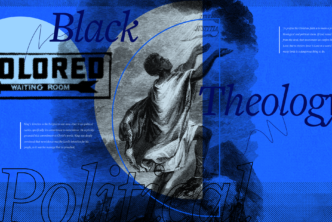For nearly 2,000 years, Christians have recited the Apostles Creed. Why? Why after millennia is it still important . . . still relevant?
Here’s a short answer from Ben Myers in The Apostles’ Creed: A Guide to the Ancient Catechism and the new children’s book The Apostles’ Creed: For All God’s Children, now available.
The creed comes from baptism. It is a pledge of allegiance to the God of the gospel—a God who is revealed as Father, Son, and Holy Spirit; a God who is present to us in the real world of human flesh, creating, redeeming, and sanctifying us for good works.1
Other theologians, like R. C. Sproul and J. I. Packer, agree on the importance of the Apostles’ Creed. They describe it as a declaration of the gospel, an invitation to explore, and more.
The text of the Apostles Creed
If it’s been a while since you’ve read or recited the Apostles Creed, now might be a good time for a thoughtful refresher. Here’s the text, from Historic Creeds and Confessions:
I believe in God the Father, Almighty, Maker of heaven and earth
And in Jesus Christ, his only begotten Son, our Lord
Who was conceived by the Holy Ghost, born of the Virgin Mary
Suffered under Pontius Pilate; was crucified, dead and buried;
He descended into hell
The third day he rose again from the dead
He ascended into heaven, and sits at the right hand of God the Father Almighty
From thence he shall come to judge the quick and the dead
I believe in the Holy Ghost I believe a holy catholic* church;
The communion of saints
The forgiveness of sins
The resurrection of the body
And the life everlasting. Amen.2
*The word “catholic” refers to the universal Church.
Quotes about the Apostles Creed
“Declaration of the gospel”
When we reach the point where the Creed no longer looks or sounds to Christian people like a declaration of the gospel, there is need, I believe, for some whistle-blowing and reassessment of what goes on. For in fact the Creed itself was born as an instrument of evangelism.3
—J. I. Packer, Affirming the Apostles’ Creed
“Truth that is foundational to life”
This ancient creed summarizes the cardinal tenets of Christian belief, including those affirmations of the confessing church that capture the very essence of Christian thought and faith. It boldly declares that there is truth that is foundational to life, a truth that cannot be compromised without the peril of falling into the abyss of meaninglessness.4
—R. C. Sproul, What We Believe: Understanding and Confessing the Apostles’ Creed
“Redeeming love, from eternity to eternity”
Today, on our own turf, we face pagan ignorance about God every bit as deep as that which the early church faced in the Roman Empire. The ABC approach [to explaining the gospel] is thus not full enough; the whole story of the Father’s Christ-exalting plan of redeeming love, from eternity to eternity, must be told, or the radical reorientation of life for which the gospel calls will not be understood, and the required total shift from man-centeredness to God-centeredness, and more specifically from self-centeredness to Christ-centeredness, will not take place. All that the Creed covers needs to be grasped and taught, as an integral part of the message of the saving love of God.3
—J. I. Packer, Affirming the Apostles’ Creed
“A framework”
Even today the creed provides a framework—strong yet surprisingly flexible—for Christian thinking and Christian commitment.1
—Ben Myers, The Apostles’ Creed: A Guide to the Ancient Catechism
“Life and renewal”
The creeds make it clear that the Holy Spirit brings life and renewal to believers and the Church. Second, the creeds affirm the graciousness of God, seen especially in the forgiveness of sins. And, finally, the creeds remind us of the importance of the Church as the community of faith.5
—Alister McGrath, The Spirit of Grace
“Identity documents”
Do we really need creeds? Some people do not like the idea of pinning truth down. Others want to stick to the Bible alone. Certainly it is true that only the Bible is God’s inspired word—creeds cannot have the same authority. But most churches have found it helpful to have a summary of Christian belief. Creeds summarise who we are, they teach us what is important, and they help us avoid error. In modern business language, they are our “identity documents.”6
—Tim Chester, I Believe the Apostles’ Creed
“Ideal starting point”
It is difficult to explain Christianity to an outsider if you haven’t thought about it much yourself. Christians do indeed trust in God—but we believe certain quite definite things about him and about the impact this belief must have on us as believers. The Apostles’ Creed is an ideal starting point for this vital process of consolidating your grasp of the faith.7
—Alister McGrath, Apostles’ Creed: 6 Studies for Individuals or Groups
“Invitation to explore”
Many people have found their faith immeasurably strengthened and matured by being forced to think through areas of faith they would not have explored without the Apostles’ Creed. See the creed as an invitation to explore and discover areas of the gospel that otherwise you might miss or overlook.7
—Alister McGrath, Apostles’ Creed: 6 Studies for Individuals or Groups
“Useful review”
Although not written by the apostles themselves, the Creed is a legitimate summary of apostolic teaching. Does it cover everything the apostles taught about Jesus? No—for example, it never makes a direct statement about Jesus’ fully divine and fully human nature. But has it proven itself a useful review of major teachings that all Christians hold in common? Absolutely.8
—Adam Hamilton, Creed Youth Study Book: What Christians Believe and Why
“Profound compendium”
The Creed is such a profound compendium of Christian truth that thoughtful recitation would take considerably longer than can be spared in a Sunday morning service.9
—Donald Cole, All You Need to Believe: The Apostles’ Creed
“A shared identity”
A church family can discover a shared identity, and grow into a more zealous mission together by working through the Creed.10
—James Howell, The Life We Claim: The Apostles’ Creed for Preaching, Teaching, and Worship
“Focused, worshipful expression”
The Creed was the focused, worshipful expression of people whose lives had been totally transformed by the Bible and by the risen Jesus Christ. The Creed’s words are not windows with the shutters pulled down tightly, but windows thrown open into the very heart of life with God.12
—James Howell, The Life We Claim: The Apostles’ Creed for Preaching, Teaching, and Worship
Further exploration
To gain a new appreciation of the Apostles’ Creed for yourself, pick up The Apostles’ Creed: A Guide to the Ancient Catechism. And to help your family understand and reflect on the Apostles Creed, take a look at The Apostles’ Creed: For All God’s Children.
Related article
The Apostles’ Creed: Its History and Origins
- Myers, Ben. 2018. The Apostles’ Creed: A Guide to the Ancient Catechism. Edited by Todd Hains, Jeff Reimer, and Sarah Awa. Christian Essentials. Bellingham, WA: Lexham Press.
- Historic Creeds and Confessions. 1997. Electronic ed. Oak Harbor: Lexham Press.
- Packer, J. I. 2008. Affirming the Apostles’ Creed. Wheaton, IL: Crossway.
- Sproul, R. C. 2015. What We Believe: Understanding and Confessing the Apostles’ Creed. Grand Rapids, MI: Baker Books.
- McGrath, Alister. 2015. The Spirit of Grace. Vol. 4. Christian Belief for Everyone. London: SPCK.
- Chester, Tim. 2007. I Believe the Apostles’ Creed. Good Book Guides Series. The Good Book Company.
- McGrath, Alister, Dale Larsen, and Sandy Larsen. 2016. Apostles’ Creed: 6 Studies for Individuals or Groups. A LifeGuide Bible Study. Downers Grove, IL: IVP Connect: An Imprint of InterVarsity Press.
- Hamilton, Adam. 2016. Creed Youth Study Book: What Christians Believe and Why. Nashville: Abingdon Press.
- Cole, C. Donald. 1998. All You Need to Believe: The Apostles’ Creed. Chicago, IL: Moody Publishers.
- Howell, James. 2011. The Life We Claim: The Apostles’ Creed for Preaching, Teaching, and Worship. Nashville: Abingdon Press.
- 11Howell, James. 2011. The Life We Claim: The Apostles’ Creed for Preaching, Teaching, and Worship. Nashville: Abingdon Press.








